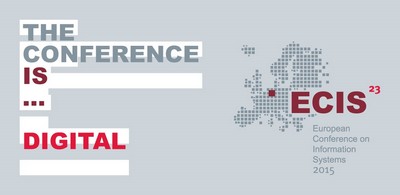DOI
10.18151/7217492
Abstract
Service level agreements (SLAs) for complex IT-intensive business-to-business (CITI-B2B) services are high-level representations of services to be enacted, with predominantly quantifi-able performance targets. Inevitably, there is a gap between this representation and the nu-anced practices of enactment adapting to emergent conditions over time. Overarching terms in the master agreement anticipate this gap; however, the nature of practices that manage that gap is not well understood. This study aims to develop a deeper understanding of these everyday practices to identify potential areas for improving value realisation in SLA enactment. We conducted a long-term ethnographic study of the enactment of an SLA by a global IT provider and global financial services company, framed by relational theory of contract. Our analysis showed the gap was managed by a cycle of enactment in which emergent conditions triggered relational interactions among participants, culminating in decisions to adapt the terms of the SLA to realise value. Further, our analysis showed that the cycle is enabled by informal mechanisms of learning, negotiating, and adapting that we refer to collectively as relational capability, which is amenable to representation. Exploiting this information as feedback for SLAs could enable them to generate increased value by becoming continuously evolving learning instruments.
Recommended Citation
Stern, Andrea L. and Davis, Joseph, "An Ethnographic Study of SLA Enactment" (2015). ECIS 2015 Completed Research Papers. Paper 176.
ISBN 978-3-00-050284-2
https://aisel.aisnet.org/ecis2015_cr/176


